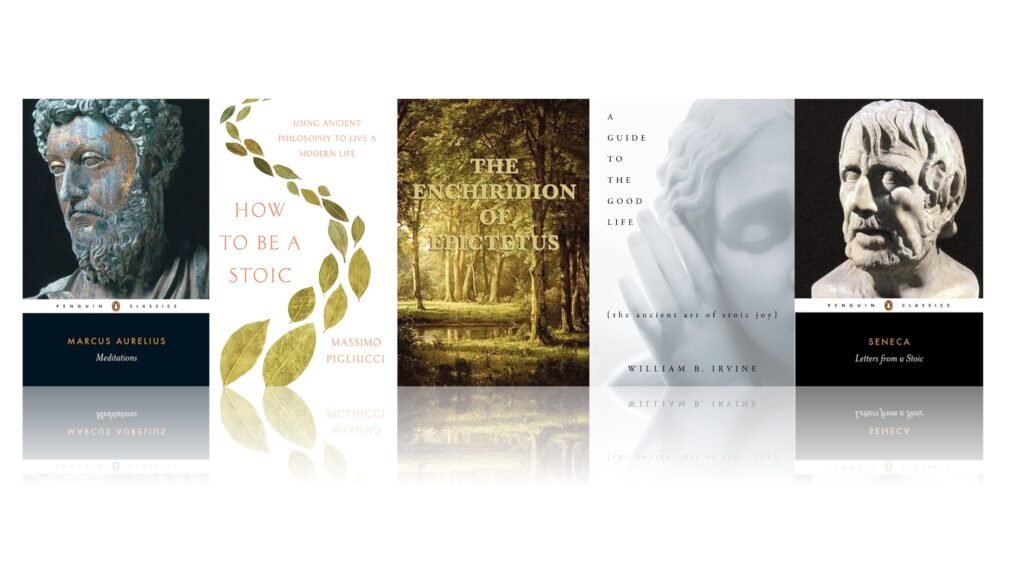In an age of constant distraction, emotional turbulence, and information overload, many individuals are turning to ancient philosophies for guidance. Among these, Stoicism—a school of thought founded in ancient Greece and later refined in Rome—has seen a remarkable resurgence. Its principles of resilience, self-discipline, and rational thinking offer timeless tools for personal growth. Whether you’re a seasoned philosopher or a curious beginner, the following five books provide a solid foundation in Stoic thought and practical application.
1. Meditations by Marcus Aurelius
Written by the Roman Emperor Marcus Aurelius during his military campaigns, Meditations is a series of personal reflections that offer profound insights into leadership, duty, and inner peace. Despite being over 1,800 years old, the book remains remarkably relevant today.
- Why it’s impactful: Marcus Aurelius wrote not for an audience but for himself, making the work deeply introspective and authentic.
- Key takeaway: Control what you can, accept what you cannot, and maintain virtue in all circumstances.
- Modern relevance: Leaders like Bill Clinton and entrepreneurs such as Tim Ferriss have cited Meditations as a source of inspiration.
Case studies show that individuals who regularly engage with Stoic texts like Meditations report higher levels of emotional resilience and lower stress levels, according to a 2020 study published in the Journal of Positive Psychology.
2. Letters from a Stoic by Seneca
Lucius Annaeus Seneca, a Roman statesman and philosopher, wrote a series of letters to his friend Lucilius that are now compiled as Letters from a Stoic. These letters cover a wide range of topics, from wealth and poverty to grief and friendship.
- Why it’s impactful: Seneca’s writing is accessible and practical, making Stoic philosophy easy to apply in daily life.
- Key takeaway: True wealth lies in contentment, not in material possessions.
- Modern relevance: The book is often recommended in cognitive behavioral therapy (CBT) circles for its alignment with modern psychological principles.
Seneca’s emphasis on rational thought and emotional control has been linked to improved mental health outcomes, particularly in managing anxiety and depression.
3. The Enchiridion by Epictetus
Compiled by his student Arrian, The Enchiridion (or “Handbook”) distills the teachings of Epictetus into concise, actionable advice. A former slave turned philosopher, Epictetus emphasized the importance of inner freedom and self-mastery.
- Why it’s impactful: Its brevity and clarity make it an ideal starting point for Stoic beginners.
- Key takeaway: Focus only on what is within your control; let go of the rest.
- Modern relevance: Frequently cited in military leadership training and personal development seminars.
According to a 2018 survey by the Modern Stoicism organization, over 70% of readers found The Enchiridion to be the most practical Stoic text for daily use.
4. A Guide to the Good Life: The Ancient Art of Stoic Joy by William B. Irvine
This modern interpretation of Stoicism bridges the gap between ancient wisdom and contemporary life. Philosopher William B. Irvine offers a roadmap for applying Stoic principles to modern challenges such as consumerism, stress, and interpersonal conflict.
- Why it’s impactful: Irvine combines historical context with modern psychology to make Stoicism accessible to a 21st-century audience.
- Key takeaway: Practicing negative visualization can increase gratitude and reduce anxiety.
- Modern relevance: Frequently used in university philosophy courses and self-help workshops.
Studies have shown that techniques like negative visualization, as discussed in the book, can significantly improve emotional well-being and life satisfaction.
5. How to Be a Stoic by Massimo Pigliucci
Written by philosopher and scientist Massimo Pigliucci, this book offers a personal journey through Stoicism, guided by the teachings of Epictetus. Pigliucci blends ancient philosophy with modern science, making a compelling case for Stoicism as a practical life philosophy.
- Why it’s impactful: The book is both autobiographical and instructional, making it relatable and informative.
- Key takeaway: Philosophy is not just theoretical—it’s a way of life.
- Modern relevance: Appeals to readers interested in both science and spirituality.
Pigliucci’s work has been praised for its clarity and depth, and it has helped many readers integrate Stoic practices into their daily routines, from journaling to mindfulness exercises.
Conclusion: Embrace Stoicism for a Resilient Life
Stoicism offers a powerful framework for personal growth, emotional resilience, and ethical living. The five books highlighted above—ranging from ancient texts to modern interpretations—serve as invaluable resources for anyone seeking to cultivate inner strength and clarity in a chaotic world.
Whether you’re drawn to the meditative reflections of Marcus Aurelius or the practical advice of William Irvine, each book provides unique insights into how to live a more intentional and fulfilling life. By integrating Stoic principles into your daily routine, you can develop the mental fortitude to face life’s challenges with grace and wisdom.
In the words of Epictetus: “It’s not what happens to you, but how you react to it that matters.” Let these books guide your journey toward becoming the best version of yourself.

